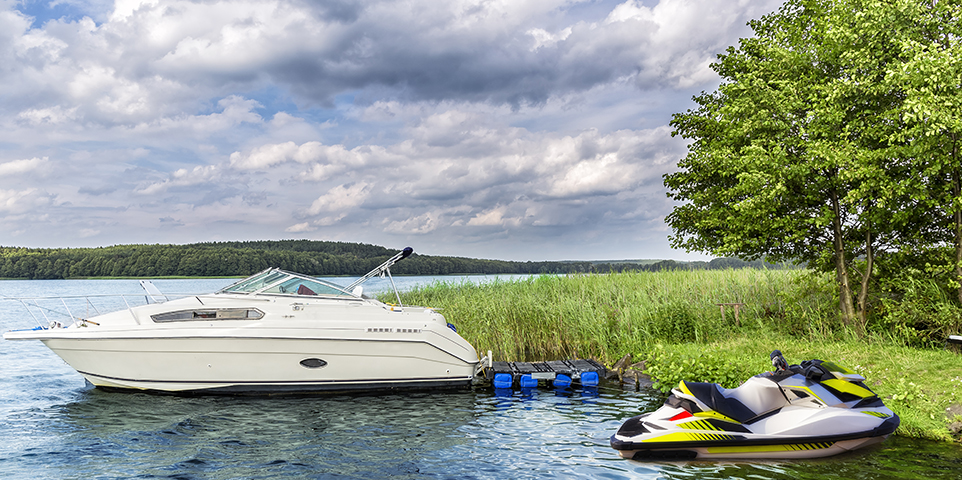MEMBERSHIP
AMPLIFY
EN ESPAÑOL
Connect With Us
- Popular search terms
- Automobile
- Home + Renters
- Claims
- Fraud
- Hurricane
- Popular Topics
- Automobile
- Home + Renters
- The Basics
- Disaster + Preparation
- Life Insurance

Personal watercraft (known by brand names like Jet Skis, Sea-Doos or WaveRunners) can be lots of fun on the water. But, like any moving vehicles, they are subject to accidents and it’s wise to get the proper insurance to protect yourself financially.
Unlike small boats, personal watercraft are not generally covered by homeowners insurance (and in the rare cases they are, coverage limits are low). Personal watercraft insurance (PWC) is specifically designed in order to insure these vessels.
A personal watercraft policy covers you or someone who you've allowed to operate your craft for incidents that result in:
Deductibles and liability limits vary by policy and by company. PWC also may cover:
Additional coverage can also be purchased for trailers and other accessories. If you have several personal watercraft, you may qualify for a multi-boat discount on your insurance. Consult your insurance professional about your specific needs.
As jet skis are fun and deceptively easy to use, many people fail to realize that personal watercraft also can be dangerous—in fact, each year they cause thousands of serious injuries.
To safely enjoy your personal watercraft:
Next steps link: Graduating from personal watercraft to a large vessel? Learn about boat insurance.